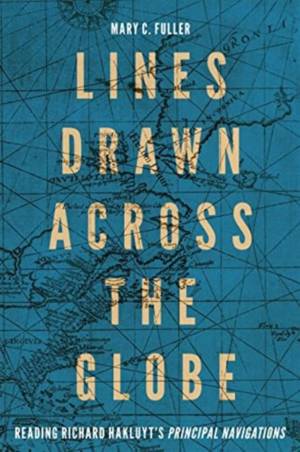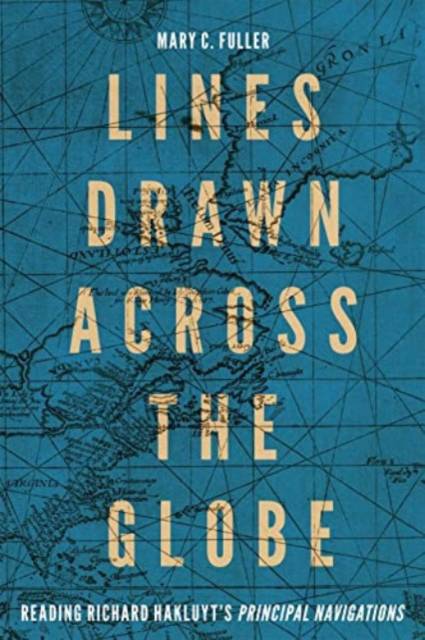
- Retrait gratuit dans votre magasin Club
- 7.000.000 titres dans notre catalogue
- Payer en toute sécurité
- Toujours un magasin près de chez vous
- Retrait gratuit dans votre magasin Club
- 7.000.0000 titres dans notre catalogue
- Payer en toute sécurité
- Toujours un magasin près de chez vous
Lines Drawn Across the Globe
Reading Richard Hakluyt's "Principal Navigations" Volume 90
Mary C Fuller
77,95 €
+ 155 points
Description
Around 1600, the English geographer and cleric Richard Hakluyt sought to honour his nation by publishing a compilation of every document he could find relating to its voyages and trade beyond the boundaries of Europe. The resulting collection of travel narratives, royal letters, ships' logs, maps, lists, and commentaries was published as Principal Navigations, Voyages, Traffiques and Discoveries of the English Nation. Spanning two thousand pages and documenting more than two hundred voyages, Principal Navigations is a window onto how the world appeared to England in 1600. Lines Drawn across the Globe unlocks Richard Hakluyt's work for modern readers. Mary Fuller traces the history of the book's compilation and gives order and meaning to its famously diverse contents. From Sierra Leone to Iceland, from Spanish narratives of New Mexico to French accounts of the Saint Lawrence and Portuguese accounts of China, Hakluyt's shaping of this many-authored book provides a conceptual map of the world's regions and of England's real and imagined relations to them: exchange, alliance, aggression, extraction, translation, imitation - always depending on the needs of the moment. At the height of the British imperial project, Principal Navigations came to be seen and valued as a founding document of English national identity. It remains a crucial piece of evidence on the history of empire, the nation, and the world. Yet after a century and a half of modern scholarship, Hakluyt's book needs to be disentangled from the perspectives of the nineteenth century and read anew. Lines Drawn across the Globe works across the scales of Hakluyt's collection to deliver a dazzling account of an editorial project that was fundamental to England's encounter with the world - and the nation's idea of itself.
Spécifications
Parties prenantes
- Auteur(s) :
- Editeur:
Contenu
- Nombre de pages :
- 600
- Langue:
- Anglais
- Collection :
Caractéristiques
- EAN:
- 9780228016762
- Date de parution :
- 15-07-23
- Format:
- Livre relié
- Format numérique:
- Genaaid
- Dimensions :
- 160 mm x 232 mm
- Poids :
- 997 g

Les avis
Nous publions uniquement les avis qui respectent les conditions requises. Consultez nos conditions pour les avis.






